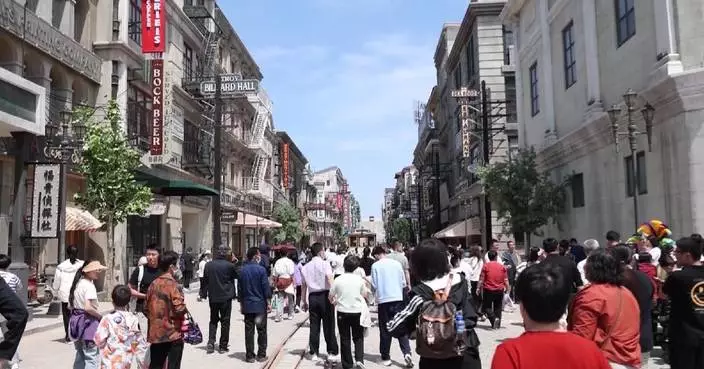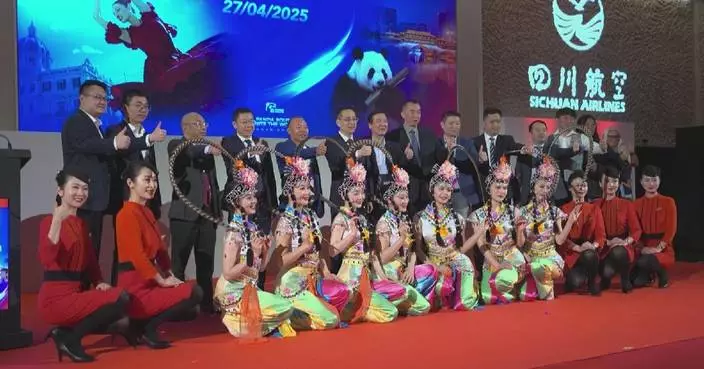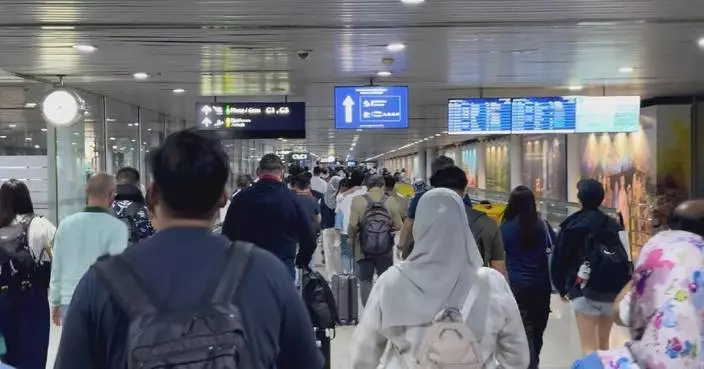China has defined new competition rules for the world's first humanoid robot half-marathon as part of the Beijing E-town Half-marathon set to be held on Sunday.
The groundbreaking event marks a major milestone in the development of embodied AI and humanoid robotics.
Spanning over 21 kilometers, the half-marathon will require participating bipedal robots to execute approximately 250,000 precise joint movements.
Most of the participating bipedal robots will have their batteries replaced or even be fully replaced during the competition.
According to the competition rules, any robot that does not change its batteries at the supply station will receive a time penalty. Replacing a robot entirely during the competition will also incur a time penalty.
"The competition adopts a comprehensive timing method to calculate the final scores of participating teams, which is determined by subtracting any penalty time for rule violations from the total time taken from the starting point to the finish line. This could bring about the scenario where the first robot to reach the finish line may not necessarily be ranked the first in the final standings," said Wang Guolin, deputy head of the robot group of the half-marathon race.
The medals for the competition made their first debut on Wednesday. Participating bipedal robots can receive their medals as long as they complete the race within three and a half hours.

Beijing defines new competition rules for world's first humanoid robot half-marathon
U.S. consumers will see higher prices and slower deliveries after Friday's expiration of a duty-free treatment for Chinese imports under 800 U.S. dollars, known as the de minimis threshold.
According to an executive order signed by President Donald Trump on April 2, starting from Friday (May 2), imported goods from China entering the U.S. through means outside the international postal network, which are valued at or under 800 U.S. dollars and would otherwise qualify for the de minimis exemption, will be subject to all applicable duties, which should be paid in accordance with applicable entry and payment procedures.
The order also leaves all relevant postal items containing goods from China sent through the international postal network, which are valued at or under 800 dollars and would otherwise qualify for the de minimis exemption, subject to a duty rate of either 30 percent of their value or 25 dollars per item (increasing to 50 dollars per item after June 1). It adds that this is in lieu of any other duties, including those imposed by prior orders.
It's estimated that the U.S. receives nearly four million low-value packages every day, most of which come from China. According to a report from the Congressional Research Services of the United States, low-value packages from China have skyrocketed from 5.3 billion dollars in 2018 to 66 billion dollars in 2023.
In response, the Chinese Ministry of Commerce has stated that the U.S. adjustment on its tariff policy on low-value imports is destructive and will seriously affect the interests of American consumers.
The ministry said that any adjustment to cross-border e-commerce should aim to bring more convenience to consumers.
The de minimis provision, which was introduced in 1938 for shipments of five U.S. dollars or less, allows low-value parcels to enter the U.S. tax free. In 2016, that threshold was increased to 800 dollars.
The policy was intended to reduce the administrative burden for U.S. customs, speed up e-commerce flow for both retailers and consumers, and encourage cross-border trade by lowering barriers for cheaper items.

U.S. consumers to feel pinch as duty-free treatment for cheap parcels from China ends





















































